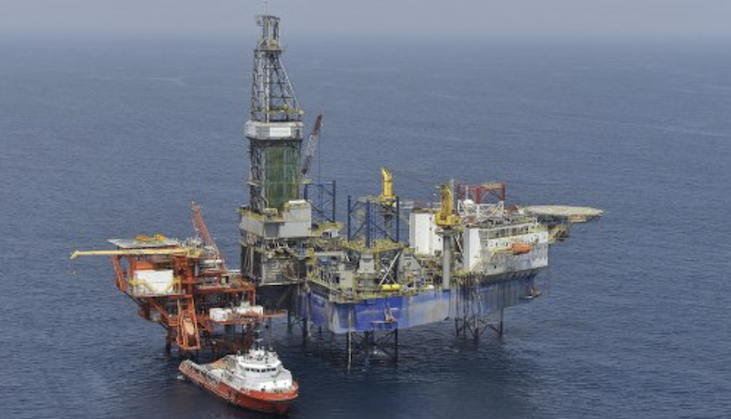The Société nationale des opérations pétrolières de Côte d’Ivoire (Petroci) is entering a new era.
Initially a company with public financial participation, Petroci has become a 100% public company. This change came at a time when the company was beginning to multiply its partnerships and was supposed to give it the tools it needed to develop. This change in status now protects the company against possible abusive legal or arbitration proceedings.
This will prevent seizures of assets when the company loses a court case, in accordance with the uniform treaty of the Organisation for the Harmonisation of Business Law in Africa (Ohada), which governs the business climate in Francophone African countries.
In September 2021, the Italian oil company discovered one of the country’s largest oil and gas deposits in Whale.
The change in Petroci’s status was requested by the group’s management, including its managing director, Vamissa Bamba, and is expected to give it a free hand in negotiations with oil groups; in particular, with the Italian group ENI, one of the most important partners, with whom relations are sometimes difficult.
In September 2021, the Italian oil company discovered one of the country’s largest oil and gas deposits in Whale. Initial estimates suggested a reserve of 2 billion barrels of crude oil and 2.4bn cubic feet of natural gas – not enough to make Côte d’Ivoire an oil giant, but more than enough to supply the country’s power stations with natural gas.
First barrels in the first half of 2023
As part of its joint venture with ENI, Petroci had a 10% stake in the CI-101 licence, where the discovery was made. A few months after the discovery of the site, on 29 December 2021, once the decree authorising the exclusive exploitation of the deposit had been signed by President Alassane Ouattara, Vamissa Bamba wrote to Sergio Laura, the managing director of ENI’s local subsidiary, to negotiate an increase in the state-owned company’s stake in the block. Petroci wanted to increase its share to 17%. This was an unprecedented operation: usually, Petroci is only entitled to 15% of each block in which it is not the operator. “This is a clause in the production sharing contract,” says a source at ENI’s headquarters in Milan. ENI now owns 83% of the CI-101, and Petroci has increased its share to 17%.
The development plan for the field calls for three wells to be drilled this year, which is the first phase. The first barrels are expected to come out in the first half of 2023 with a production of 12,000 barrels/day of crude oil and 17.5m cubic feet/day of associated natural gas. The second phase of development will involve some 60 wells at an investment of around $11bn and a projected throughput of between 75,000 barrels/day and 100,000 barrels/day of crude oil and 140m cubic feet/day of natural gas. The field is expected to be in full production from 2026, generating resources that will feed directly into the government’s coffers.
This major discovery impacts the new global strategy of Petroci which, for some years, had decided to refocus on its core business: exploration and production. This decision follows earlier attempts to diversify into upstream and downstream activities. Petroci had entered into a partnership with the Nigerian MRS to create a joint venture, Corlay, which had taken over the distribution network of the American Chevron. This experiment ended up failing, undermined by differences between the partners.
Multiplying partnerships
In its new strategy, Petroci is multiplying alliances. The company has entered into a partnership with Nigerian Sahara Energy to create the company Sapet. This joint venture, 65% owned by Sahara and 35% by Petroci, will develop and operate a liquefied petroleum gas storage sphere with an annual capacity of 12,000 tonnes for an investment of €36.6m ($39.2m). Since 2018, the company has sold its distribution network to trader Trafigura through the creation of a joint venture, Puma Energy Côte d’Ivoire (PECI), in which Petroci holds 20%. A year later, the financial situation deteriorated, with negative equity linked to the commercial difficulties of the service station distribution network. The call for tenders for the sale of its gas business is underway.
This refocusing on its core business is an important shift for the state-owned company. However, the new management plans to strengthen its downstream activities, and Petroci plans to expand there, notably with the construction of a new wharf in the port of Abidjan, for which financing has yet to be found. Although the company is in relatively good financial health, with a turnover of 268.9bn CFA francs (around $438m) and a net profit of 9.5bn CFA francs, the accounts are not solid enough. A dispute over Block 50 in Oman caused it to lose 11.9bn CFA francs.
We are aware of this depreciation. We will work to consolidate the accounts. We are on several oil blocks
Another partnership with the oil company Vitol, concerning the exploration of offshore block 508, also cost the company about 11.4bn CFA francs. This block was eventually returned to the Ivorian state, but the total exploration losses were estimated to be more than 50bn CFA francs by the end of 2020. “We are aware of this depreciation. We will work to consolidate the accounts. We are on several oil blocks,” says a source in Petroci’s management.

